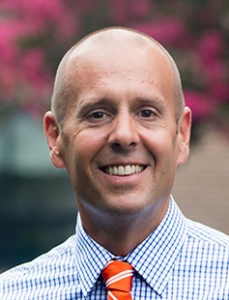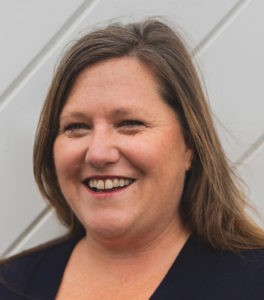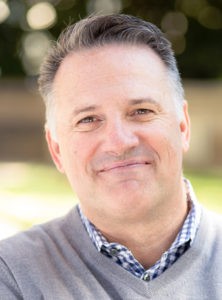Church leaders in denial that change is inevitable got a wakeup call during the coronavirus outbreak.
“The pandemic has made it so that now everybody is paying attention” to change, said Tod Bolsinger, executive director of the Fuller Depree Center’s Church Leadership Institute in Pasadena, Calif.
Developing the resilience to negotiate change, and to lead congregations through it, will be Bolsinger’s focus during Campbell University’s upcoming Churchwise Series on resilience titled “Leading Change.”
“It’s about preparing for ministry in a disruptive world and how you deal with a world that is changing so dramatically that the things you were trained for don’t seem to work anymore,” said Bolsinger, author of Canoeing the Mountains: Christian Leadership in Uncharted Territory and Tempered Resilience: How Leaders Are Formed in the Crucible of Change.

Brian Foreman
The six-session series begins Feb. 18 and will run throughout 2021. It will feature numerous speakers addressing topics such as resilience, self-care, spiritual formation, family and marriage, and leadership, said Brian Foreman, executive director of community engagement and leadership for Campbell University’s Center for Church and Community.
“We decided to offer this series as a resource to clergy to notice parts of their lives which affect their resilience and well-being,” Foreman said.
Speaker Shannon Hopkins said her focus in the series will be to describe resilience as the ability and willingness to identify change, to be willing to take risks in ministry and to understand how different stakeholders are affected by change.
“I talk about how you lead through that process … and I talk about why you say ‘yes’ to change by asking the right questions,” said Hopkins, a former Texas Baptist church planter and co-founder and lead cultivator at Rooted Good, a nonprofit organization that designs training and productivity tools for congregations and social entrepreneurs.

Shannon Hopkins
Embracing change may include experimenting with ministries and new ways of doing church that could eventually fail, she said. It’s about embracing sustainability that’s less about filling pews and more about seeking to do God’s work in the world.
Clergy and congregations need guidance in discovering that mission for their context and the courage to carry it out, Hopkins explained. “Right now, church culture is polarized. Some people want a new future, others want to go back to the past. That is polarizing in itself. People get caught up on familiarity and comfort.”
Church communities must find ways to bridge those gaps and to remember they are on the same team, she said, adding that process itself can instill in congregations the strength and courage to embrace the uncertainty that comes with new approaches.
“Resilience, at its core, can overcome hard things and endure.”
But clergy often must find the strength to lead through change even when their churches aren’t yet sold on the process of change, much less the need, Bolsinger said.
A rapidly changing world may run headlong into resistant internal congregational cultures focused mainly on maintenance and survival, he explained. And since the coronavirus outbreak, that tendency is expressed as desires to return to pre-pandemic ways of being church.
“People looking right in the face of change will say, ‘I just want to get back to worship services like we had before,’” Bolsinger said. “And I say, ‘You mean the worship services no one came to before?’”

Tod Bolsinger
Aversion to transformative change is no surprise in a culture that, at least in part, has created a consumer approach to Christianity, he continued. “It’s often all about what happens in the Sunday show. Does the church have services to take care of me and family? The church becomes a vendor of religious and personal enrichment instead of a community with a shared vision.”
Leading through change-resistant attitudes requires not only patience on the part of ministers, but also courage.
“These efforts can be met by a congregation that says we don’t have to change, and that can be soul sucking for leaders,” Bolsinger said. “So, it’s not just a strategy they must find, but the resilience to work through the resistance of their own people.”
Clergy trying to lead churches through transformation would do well to exercise humility and tenacity, he said. “You have to tolerate disappointment in people’s eyes when you tell them you don’t have all the answers but that we will work together as we embrace change.”
It’s also key that church leaders in such situations have strong relationships with friends, mentors and partners in ministry, Bolsinger said. Counseling, clergy cohorts, spiritual direction and coaching can help sustain ministers through congregational change.
“All significant change has to start with the pastor,” he said. “It has to happen in your own life. Your calling is to change the culture by allowing God to transform you.”
Learn more about the educational series at Campbell University website.


